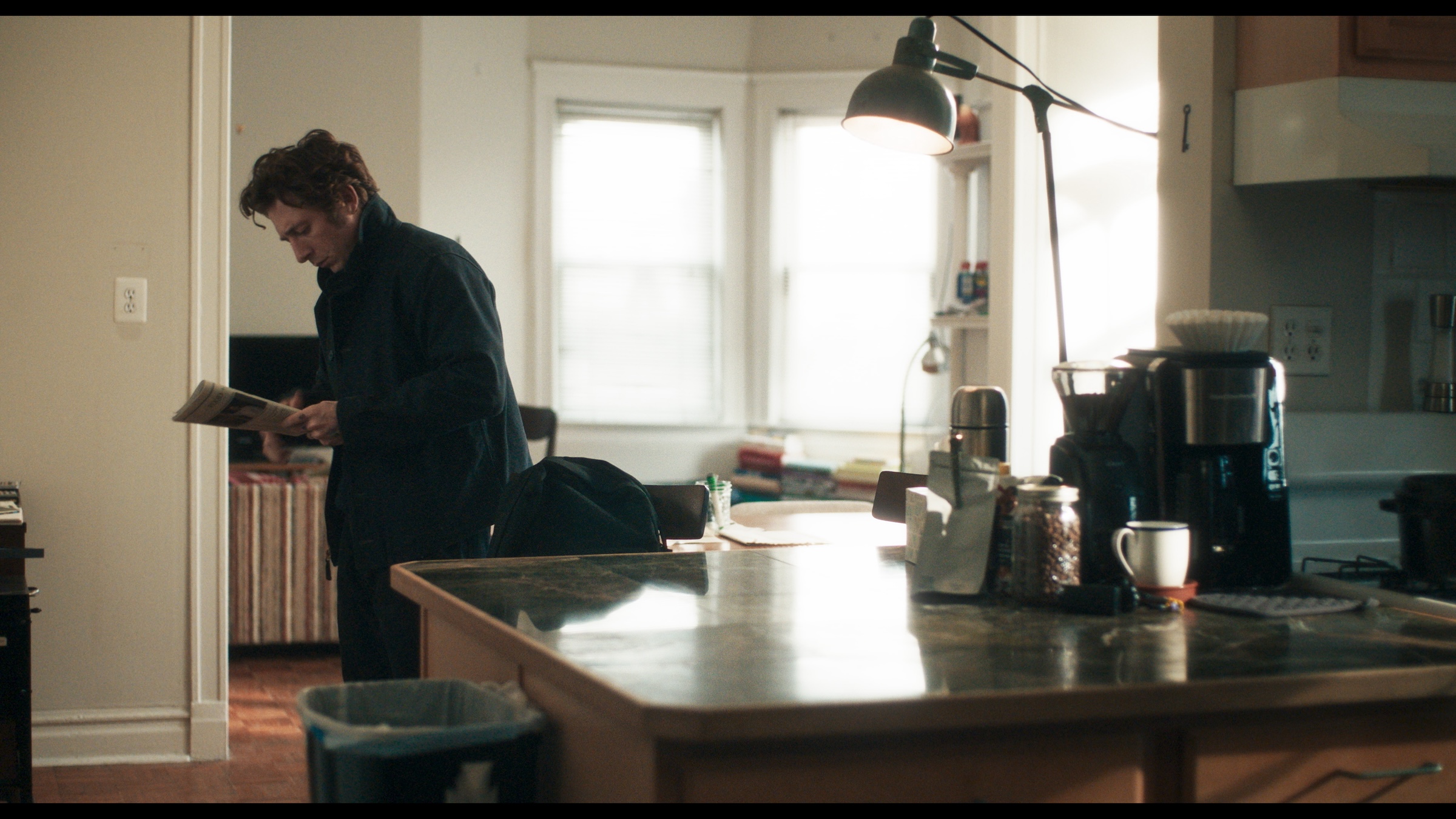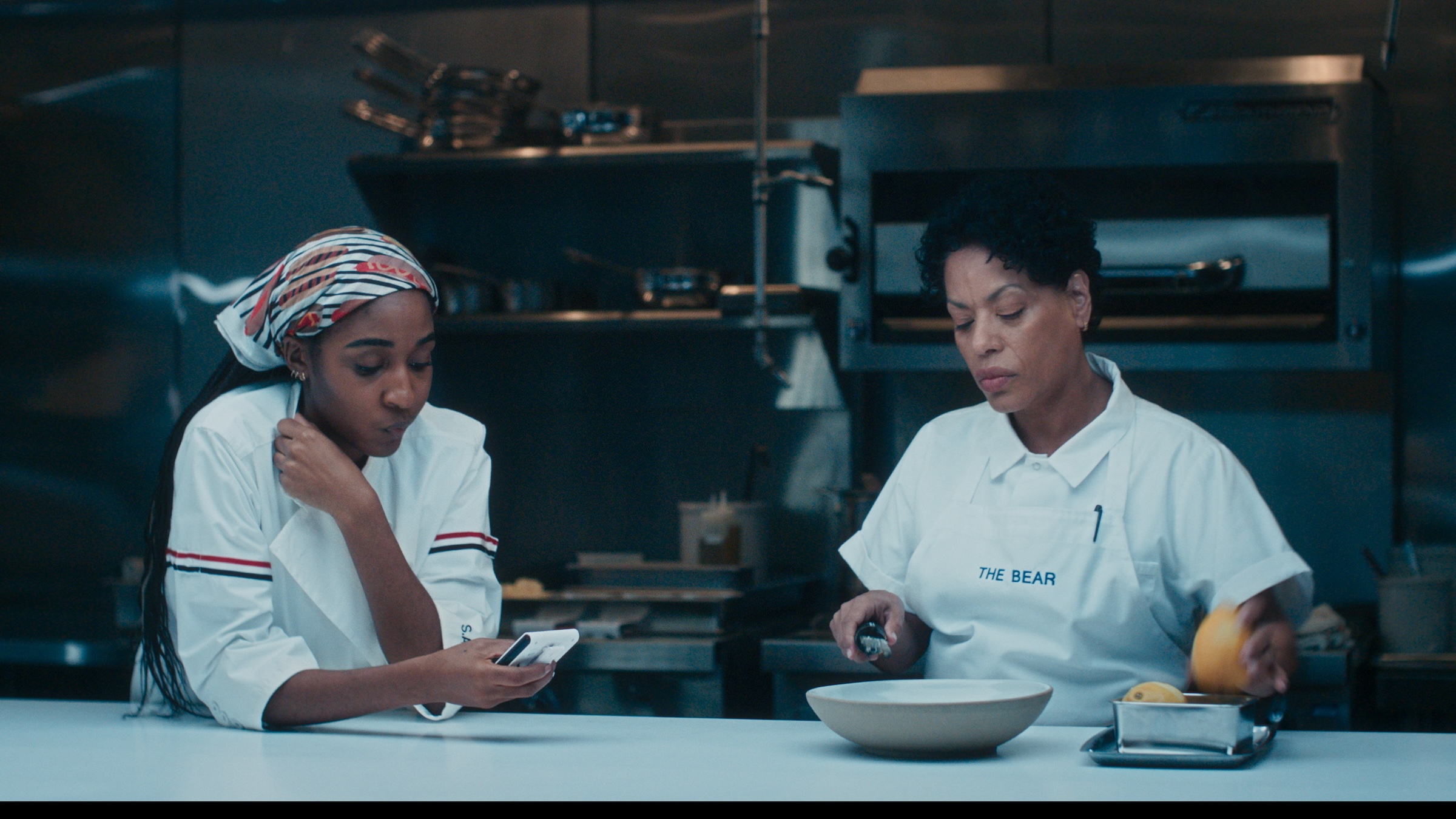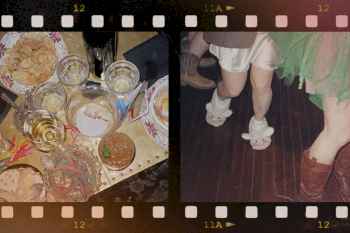The Bear Has, Quite Literally, Lost the Plot

This article contains extremely minor spoilers for The Bear Season 4.
You can’t go wrong putting delicious-looking food and the perfectionist chefs who cook it on TV. That was the lesson of Food Network’s rise in the 1990s. It held true throughout the Y2K reality boom; stalwart competitions like Top Chef and Hell’s Kitchen are still on the air after more than 20 seasons. Anthony Bourdain created his own subgenre of culturally aware, personality-driven food-travel shows that has persisted, since his death, in variations on the format from Padma Lakshmi, Stanley Tucci, Phil Rosenthal, and others. The streaming era has yielded a cornucopia of beautifully shot food programs: Chef’s Table, Omnivore, High on the Hog, Salt Fat Acid Heat.
[time-brightcove not-tgx=”true”]All of which is to say that, though it’s understood to have been a surprise hit, FX’s The Bear was well placed to become the phenomenon it is. The rare scripted series set in a restaurant, its first two seasons combined all the enticements of the best nonfiction food TV with the propulsive tale of a grieving, Paul-Newman-lookalike master chef (Jeremy Allen White) who toils to transform his family’s Italian beef joint into a fine-dining mecca worthy of a Michelin star. Like many popular food shows, The Bear makes for satisfying comfort viewing even when the narrative is lacking. Be that as it may, its fourth season, now streaming in full on Hulu, so exacerbates the stagnation that set in during Season 3 that it’s bound to make all but the least demanding fans impatient. The show still looks scrumptious. But it has, quite literally, lost the plot.
Following the frenzied efforts of White’s Carmy Berzatto, in Season 1, to save The Original Beef of Chicagoland, formerly operated by his recently deceased brother Mikey (John Bernthal), and Season 2’s transformation of the space and its staff in preparation of its rebirth as culinary destination The Bear, the third season chronicled the new spot’s rough start. Carmy chose his work over his burgeoning relationship with Claire (Molly Gordon), pushing himself towards artistic excellence—and his employees towards madness—with a new menu every day. His unwillingness to compromise made the restaurant unfeasibly expensive to run, infuriating his investor, family friend Uncle Jimmy (a.k.a. Cicero, played by Oliver Platt) and making his sister and business manager Sugar’s (Abby Elliott) life difficult as she welcomed a new baby. It also heightened Carmy’s perennial conflict with Mikey’s best friend Richie (Ebon Moss-Bachrach), whose charm eased his evolution from managing The Beef to running front of house for The Bear. Their fights in the kitchen threw dinner services into chaos. Said chaos forced Sydney (Ayo Edebiri), a talented and self-possessed young chef who once idolized Carmy, to consider leaving this restaurant she helped create to accept a job offer from a more stable competitor.
But by the end of the season, no problems had been solved and few questions answered. Maybe this was a manifestation of the same streaming bloat that has also, recently, produced maddeningly incomplete seasons of hit shows like The Last of Us and Squid Game. To give The Bear the benefit of the doubt, which it had earned, was to interpret 10 episodes’ worth of wheel-spinning as a stylistic choice underscoring the characters’ own poor communication and fundamental stuckness. When the finale made the contents of a Chicago Tribune review its cliffhanger, it seemed as though movement was finally imminent. Unfortunately, Season 4—whose thematic throughline is Carmy and his family and colleagues mending broken relationships and making amends for the hurt they’ve caused each other—is just as inert.

Carmy acknowledges as much in a premiere that finds him gloomily watching Groundhog Day on TV and complaining to pastry chef Marcus (Lionel Boyce) that he feels “stuck in the same day.” The Trib headline reads: “Bear Necessities Missing: The Bear Stumbles With Culinary Dissonance,” and the gist is that, while the food is interesting and ambitious, a lack of harmony behind the scenes makes the overall experience a crapshoot. Or, as Syd sums it up, “The Trib ate here three different times at three different restaurants… They didn’t like the chaos.” As usual, Carmy sees the situation through his own, depressive and self-absorbed, lens: “I wasn’t good enough, and I need to be better.” Whatever the core problem may be, the need for improvement is urgent. Spooked by the review, Jimmy and his numbers guy, The Computer (Brian Koppelman), come into the kitchen with a giant digital timer, counting down two months’ worth of seconds. That’s how long The Bear has to change its financial outlook or close.
This challenge should’ve been enough to get the show cooking again. Weirdly, it isn’t. Though the timer keeps ticking and graphs charting the restaurant’s progress periodically flash across the screen, little of what actually happens has much to do with this race towards profitability. It’s as though creator Christopher Storer has forgotten how to do the kind of thrilling service scenes that once made The Bear so addictive, painting plot beats and character development into the larger panorama of present-tense panic. Instead, in too many formless episodes, Season 4 favors quiet solo scenes (Syd perfects a dish amid dramatic lighting and a haunting St. Vincent track, in a set piece that looks lovely but has nothing new to say) and earnest two-handers. These one-on-one conversations sound remarkably similar to one another. Everyone is always expressing profound truths from the very bottom of their soul. And what they’re conveying, more often than not, are truisms or self-help koans: “People are not so different.” “It’s realizing the capacity to love that matters.” “There is probably one really true thing about restaurants… You are never alone.” As awards pundits never fail to notice, The Bear resists categorization as a comedy. Now, it’s not only seldom funny; it also takes itself way too seriously.
That shift in tone, from early seasons that moved fluidly between humor and wonder and angst to the relentless solemnity of the past two, has been particularly frustrating with regard to our hero. It’s not hard to believe Carmy’s a culinary genius, nor would the show work if he wasn’t one. What’s growing tiresome is his depiction as the ultimate tragic hero, noble and beautiful but cursed by the tragic flaw of his perfectionism, and specifically of his need to compensate for a bad childhood by proving he’s the best to ever tweezer microgreens onto a blanket of foam. The camera lingers for too long on his pained, Grecian-bust features. His every line is freighted with meaning. White does as great a job as is probably possible of making this overly aestheticized archetype into a believable human being. It’s not his fault that Carmy has gotten so boring.
For proof, look to Season 4’s best episode, in which he isn’t even a presence. Directed by Zola filmmaker Janicza Bravo (every other episode this season credits Storer as director or co-director), it follows Syd on a day off spent getting her hair braided at the home of a stylist pal, Chantel, played by Danielle Deadwyler. A pragmatic, emotionally intelligent contrast to Carmy, Syd is still agonizing over whether to leave The Bear or become one of its partners. When Chantel has to run to the beauty supply store for more hair, Syd entertains—and, of course, tenderly cooks a meal for—her 10-year-old daughter, TJ (Arion King), who happens to be navigating a painful transition of her own. The episode is refreshing, thanks in part to Bravo’s lighter hand and in part to the respite it offers from Carmy’s wallowing.

Standout installments of previous seasons have also spotlighted secondary characters, from Season 2’s Richie-focused “Forks” to line cook Tina’s (Liza Colón-Zayas) origin story in “Napkins,” from Season 3. The Bear should be leaning more and more on this great supporting ensemble, whose characters are rich with potential storylines, for longevity. To Storer’s credit, the new season does dial back the distracting celebrity-chef cameos and, with Deadwyler among the few exceptions, shiny A-list guest stars. (A wedding episode features many of the same characters we met in Season 2’s divisive family Christmas blowout, “Fishes,” to which this sometimes-wonderful but excessively long, 70-minute montage of confessions and reconciliations is trying a bit too hard to be a sequel.) Still: Carmy’s brooding leaves little time to venture into the lives of, say, Tina or Marcus.
Like its predecessor, this season ends with the tantalizing suggestion of big, overdue changes to come. If the twist that’s teased in the promising finale really does happen, it will be The Bear’s most substantial—and, I think, most inspired—reset to date. If not, a show that has now been in decline for half its run risks devolving into a mess as self-indulgent, morose, and, well, dissonant as its title character.



